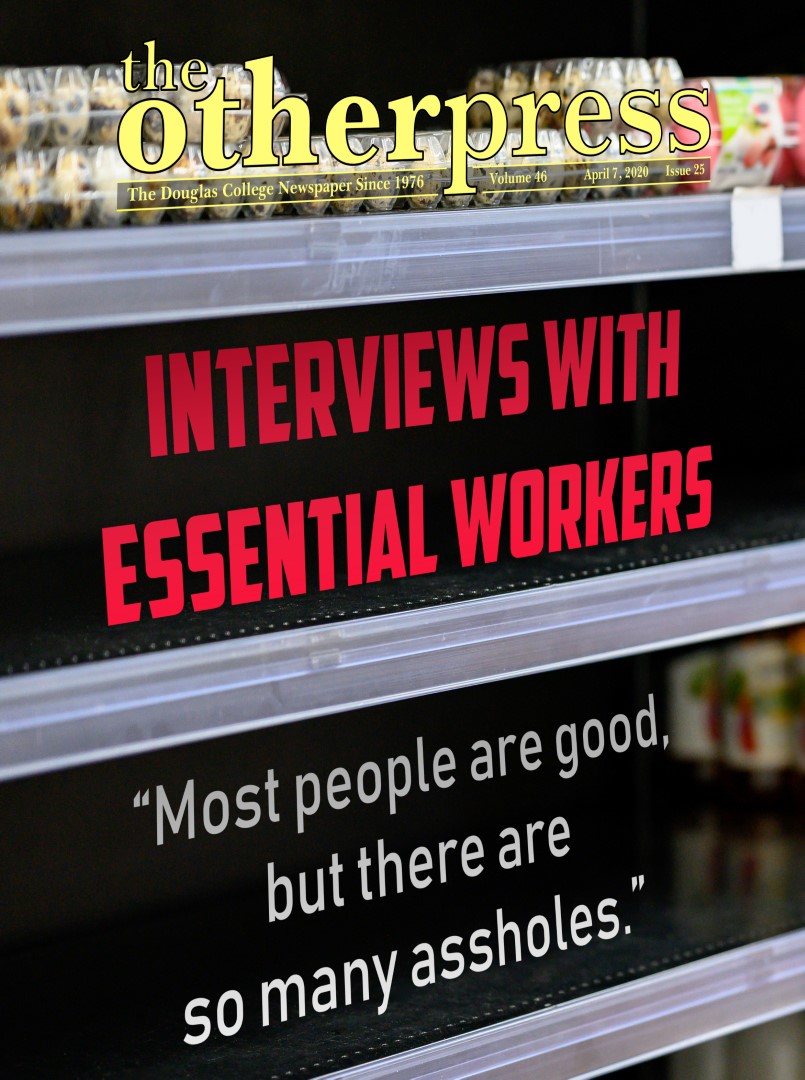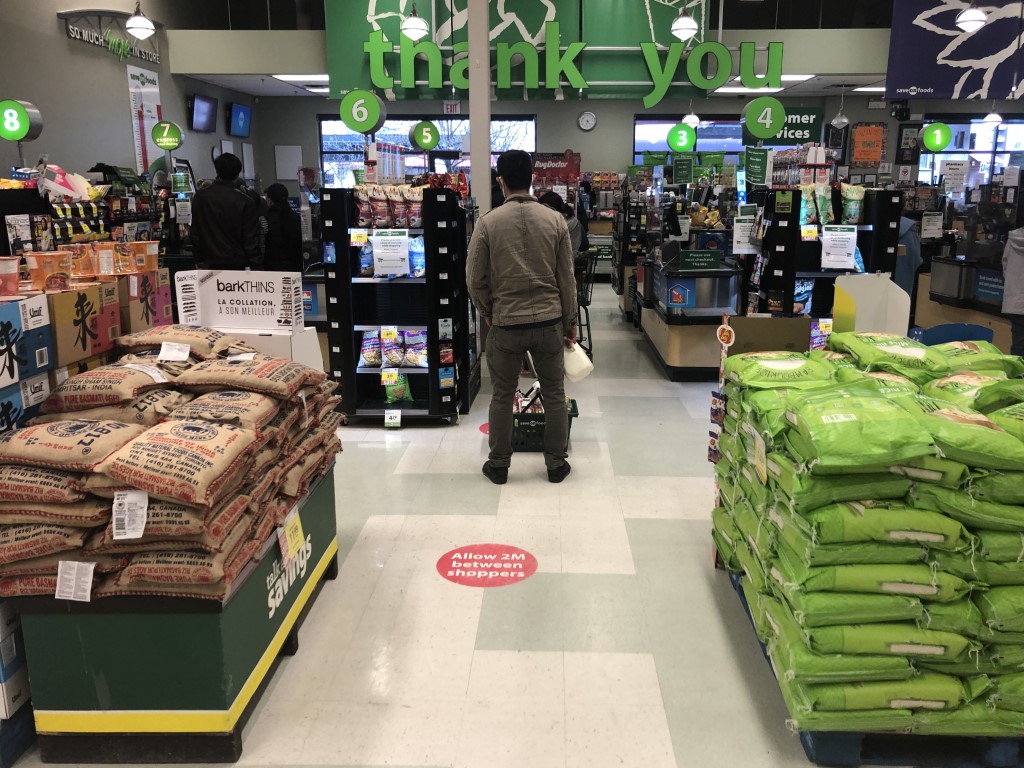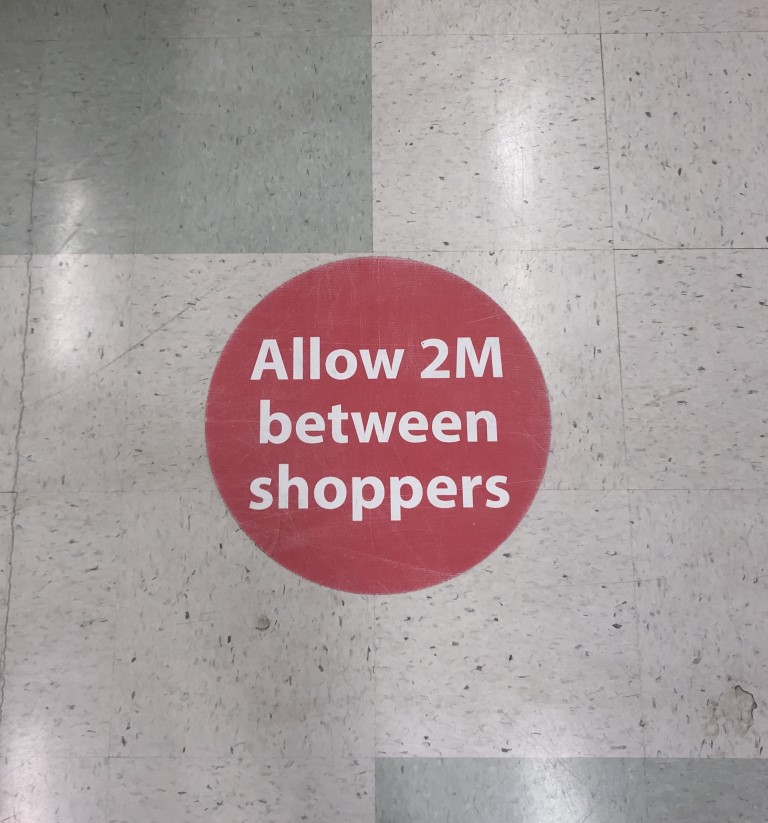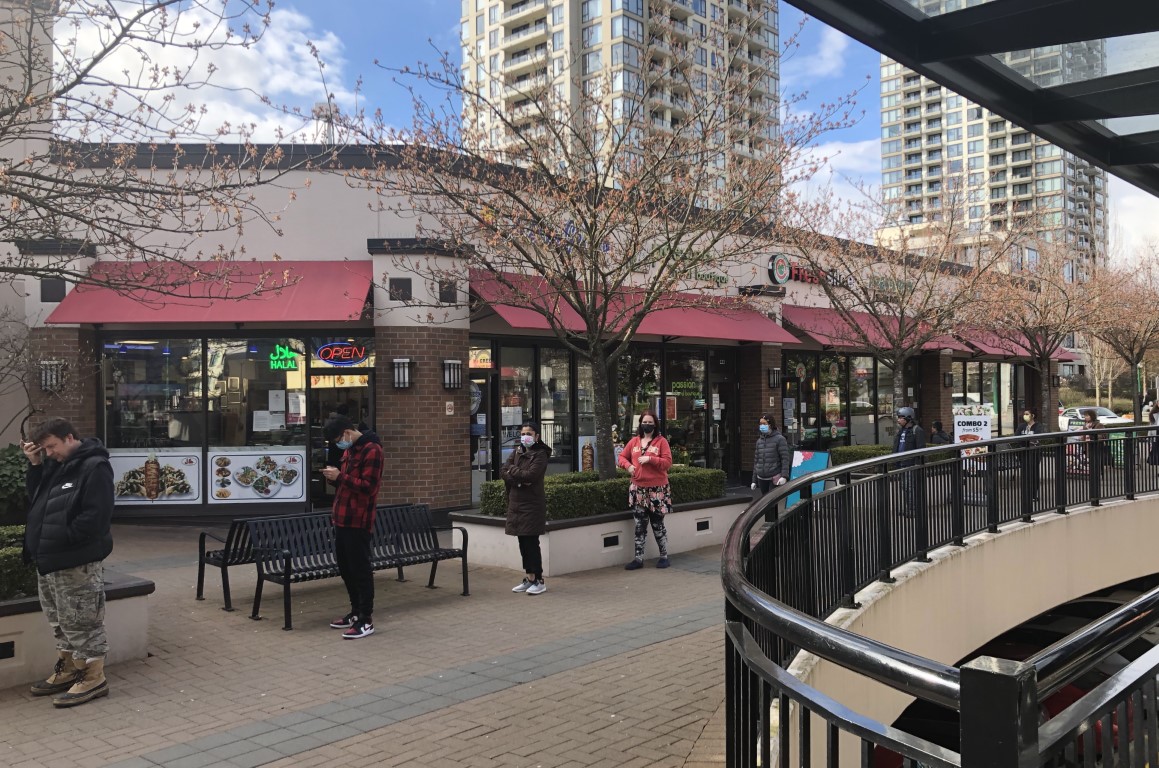
By Morgan Hannah, Life & Style Editor
The virus struck around Christmas time. It only intensified during Chinese New Year. It was a full-blown epidemic by Saint Patrick’s Day. Life is decaying in neighbourhoods all across the world… and it’s hard to say who has been hit the hardest. But we do know that many that are working their hardest right now are the essential service workers. In World War I and World War II, it was the soldiers that we tipped our hats to and saluted. In this war against a virus, the front lines are essential service workers such as healthcare, bus drivers, grocery store workers, bank tellers, car repair, police, and certain construction crews—to name a few.
Interviews with Grocery Workers
“Blush Lane is one of the few essential services, so I’m one of the few people with job protection, provided I don’t get sick. It’s as chaotic as the internet makes it out to be. Luckily, our regulars and most people are good—but there are so many assholes. It’s been a stressful couple of weeks on all fronts,” said Roxanne Elizabeth, a produce clerk from Blush Lane Organic Market in the South West of Calgary, Alberta in an interview with the Other Press.
Getting back to BC, we asked a produce manager at a Maple Ridge Save on Foods location (who requested his name be omitted) about the most obvious differences at his grocery store now compared to before the outbreak. He announced that sales have been doubling, there are stricter cleaning regimes, and social distancing is a must whenever possible. He stated that a lot more customers are wearing masks and gloves, and that they are definitely much more paranoid, resulting in frequent panic shopping and hoarding. The top five shopped for items were not surprising; it’s the usual toilet paper, hand sanitizer, paper towels, and tissue paper. The sixth though, maybe unknown to some, is eggs.

I asked how this produce manager felt about his position nowadays and whether he felt any different than he did during calmer times, and his response is this: “I feel the same about the position for the most part, it’s a lot more stressful mentally and physically. You go home exhausted and full of aches. I have little ones so it can be even harder at times. I’m just happy to have a job during this pandemic. Having a mortgage and family to take care of, I feel lucky I’m still working.” Job security is certainly valuable in a time like this. When asked whether he thought there would be any lasting changes to grocery stores after the pandemic, this produce manager talked about the strong safety and health programs that all Save on Foods locations launched. He did state that he thinks that they will be “even more thorough given this pandemic and its effects.” I asked him how long he planned on working for, and whether he had any plans to change careers at any point—to which he replied: “The company has been good to me, I plan on working here until I retire. I think we will be working through this whole pandemic. No self-isolation for me.”
Awful customer experiences
A topic that I had to ask for this produce manger’s opinion on—toilet paper hoarding—earned this response: “It’s crazy how everyone has gotten over toilet paper. Skids will come in and they are gone within the hour at times. It’s actually sad as it is a need for everyone and customers come in saying they have been to so many stores and have none at home and don’t know what to do.” This didn’t surprise me, as I found myself in a similar situation last week—only three roles left and no stores seemingly stocked up. And I wasn’t eager to wake up for the 7 am mad dash through a grocery store for my household quantity either.
When asked to describe a typical day at his job, the Save on Foods employee told me how things are typical even during the pandemic. “Come in, write an order, and try to predict trends of sales for the week—put away a huge order as it has been impossible to keep up.” He says that “it’s just more intensified now.” He also says that “there have been so many shorts as the supply chain can’t keep up—we just accept the holes in departments and try and deal with the customer frustrations.” The common theme at various grocery store locations nowadays seems to be stress. And, a lot of times, this stress seems unnecessary.
I asked how the staff handled tough customers before the pandemic, and apparently there were simple protocols to follow. Things must have changed now, though? The response to this question was disheartening: “I wish I could say that customers for the most part have been great—but to be honest, it has shocked me how they have treated us. Seeing how people deal in these circumstances has left me jaded. The rudeness and selfishness can be appalling. But I know workers will not accept being talked down to as well so that aspect is changing. Before, the customer was always right. In the end, we are the front line and we are exposed while helping these customers bring food home in this pandemic.” It seems as though the only thing that can be done is to explain to customers that we are all enduring difficult times together and the staff at Save on Foods, other grocery stores, and other essential services globally are doing their very best. There isn’t much else to be done or said. Lastly, the produce manager wanted me to pass along the importance of thanking the employees that each of us interacts with the next time we shop as it can brighten their day.

An interview with an insulator at a hospital
In another line of work at the Vancouver General Hospital, Bernie spoke with the Other Press about what it is like to be an insulator right now. His site is the last one left open as his company has temporarily shut down all other projects until further notice. When asked whether he considers himself an essential worker, Bernie commented, “I don’t consider myself an essential worker. Personally, I have no idea why we are still working, but we are working at a hospital, so that might have something to do with it. Maybe the government cannot afford for every site to shut down—that’s a lot of EI to payout. I’m just happy that I am one of the people that still have a job.” The biggest differences in Bernie’s job due to the pandemic is due to social distancing; only three people can be on the lift at a time—and workers must be focused on separate tasks. “Purell is widely available, and a hot water tank and sinks have been installed on the roof where we work. Face masks and respirators have been made available. The lift causes lots of delays as it usually takes 20 minutes to get up and down now. And COVID-19 is a highly talked about topic in safety meetings.”
Social distancing drama
The changes applied to Bernie’s site are not all bad though; “COVID-19 hasn’t really affected my job on the day-to-day. The work itself is identical to how it was before. No one has changed the work, it’s just everything else. Like how we get to work. Traffic is lighter, parking is easier, work is lighter. Sometimes I deal with stupid people, like this one guy who doesn’t want to wait for the lift. There’s always that one dude that’s lipping off and being mouthy, but we are all paid by the hour, so it doesn’t matter. Safety first.”
I asked if he could tell me more about the lift and what it’s like. To which he responded, “It’s like we’re in prison. Three people enter, two face the north wall, one faces the west, and there’s the lift operator. We’re not allowed to look at each other.” When asked how he feels about his position now versus before the pandemic, Bernie stated that it feels mostly the same. “It’s a little quieter around the job site with so many people in self-quarantine.” Lasting changes that he would like to see kept up are “the sanitary standards of the restrooms to stay where they are… they are very clean because, with COVID-19, they are cleaning those things daily. I feel confident in going number two at work.” And lastly, I asked how long Bernie intended to work for—to which he replied he’d “work until they shut us down.” Here’s hoping that isn’t anytime soon.

Whether essential or not, anyone who’s still working any job during this war deserves a pat on the back, compassion, and courtesy. What’s important is that we are all in this together. Life will be back to normal soon enough—but until then, we all should unite against the virus. We already have a shared common enemy—who needs another?



